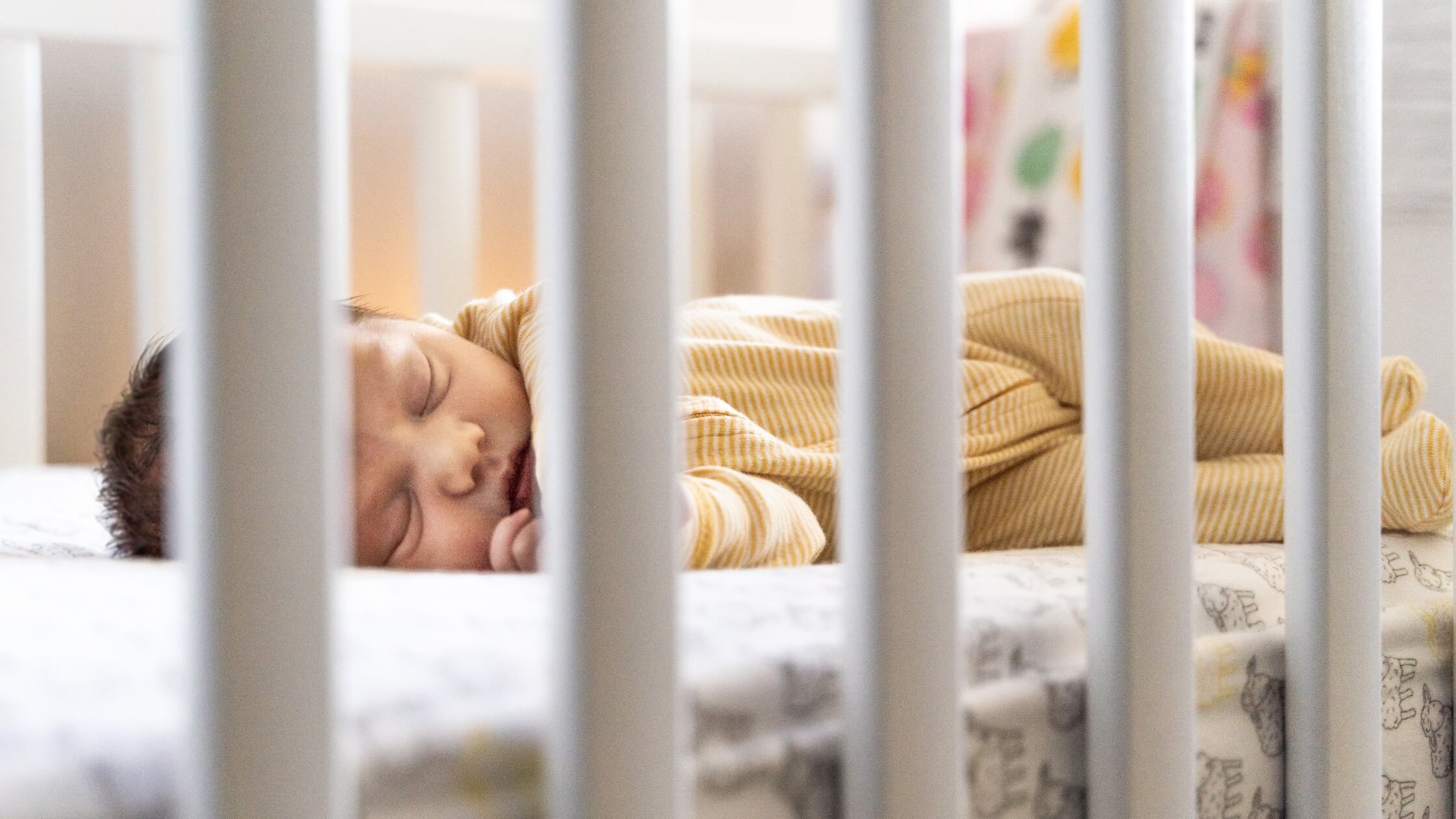Active sleep, also known as REM (Rapid Eye Movement) sleep, is a stage of sleep characterized by rapid eye movements, increased brain activity, and muscle tone changes. In newborns, active sleep is particularly important for their development. We know active sleep is something parents are curious about, so we put together this blog as a crash course. Here’s what you need to know about active sleep in newborns.
What is Active Sleep?
⭐️ Characteristics
During active sleep, a baby’s eyes move rapidly under closed eyelids, and their breathing becomes irregular and sometimes faster. Muscle tone can fluctuate, and they may make sucking or rooting motions, as if they are feeding.
⭐️ Importance
Active sleep is crucial for a baby’s brain development. It’s during this stage that the brain processes information and consolidates memories. It’s also a time when the baby’s nervous system is developing and maturing.
Why Does Active Sleep Happen?
⭐️ Brain Development
Active sleep is a reflection of the baby’s developing brain. The brain is very active during this stage, and it’s believed that this is when the brain is working to organize the day’s experiences and learning.
⭐️ Nervous System Development
The rapid eye movements and other bodily movements during active sleep are thought to be related to the development of the nervous system.
What Are Some Best Practices for Parents Regarding Active Sleep?
⭐️ Create a Safe Sleep Environment
Since newborns spend a significant portion of their sleep in active sleep, it’s crucial to ensure their sleep environment is safe. Babies should sleep on their backs on a firm, flat surface, and their sleep area should be free of loose bedding, pillows, and soft toys to reduce the risk of SIDS (Sudden Infant Death Syndrome).
⭐️ Respect Sleep Cycles
Newborns have shorter sleep cycles, with active sleep making up roughly 50% of each sleep cycle. One full sleep cycle in a newborn 0-3 or 4 months of age, typically occurs in cycles of 20-40 minutes. Parents should respect these natural sleep cycles and not disturb the baby unnecessarily during active sleep.
⭐️ Be Prepared for Feeding
Since active sleep can sometimes precede feeding, parents should be prepared to feed their baby when they show signs of waking up, such as rooting or sucking motions.
⭐️ Stay Calm and Supportive
If your baby is in active sleep and making movements or noises, it’s important to remain calm and not overreact. Babies can sense your anxiety, which can disturb their sleep.
⭐️ Seek Professional Advice
If you have concerns about your baby’s sleep patterns or if you suspect that their active sleep is disrupting their overall sleep or development, you may want to seek additional advice and support. The trusted team of sleep specialists at The Early Weeks is here to provide the professional advice and support you need to get you and your baby through tough sleep challenges.
In Conclusion
Active sleep is a normal and essential part of a newborn’s sleep cycle. By understanding and supporting your baby’s active sleep needs, you can help them develop and grow in a healthy way.

![]()
